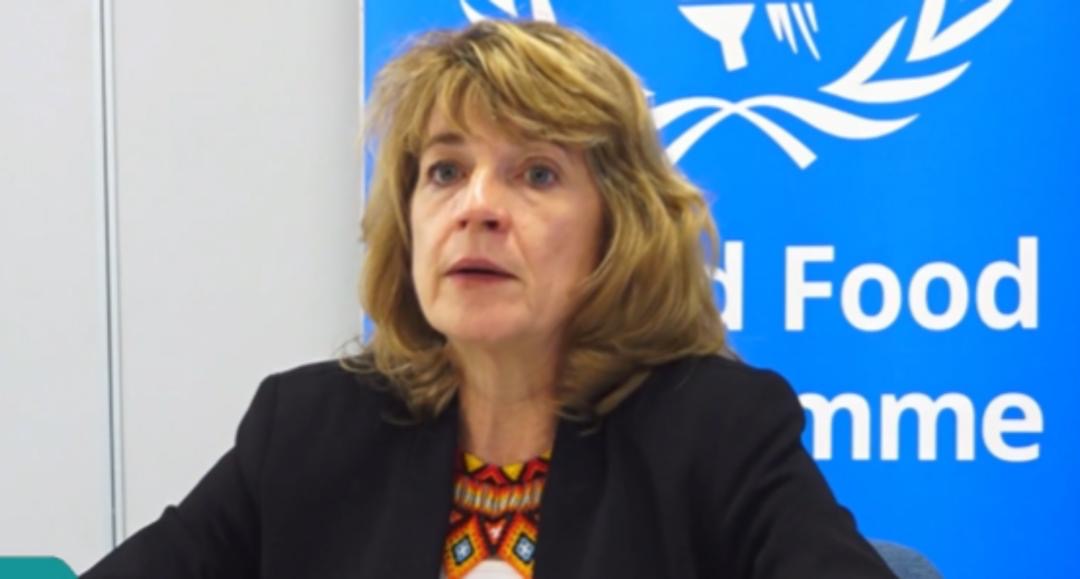The World Food Programme (WFP) has unveiled its 2026–2030 Country Strategic Plan (CSP), marking a decisive shift from emergency food aid to sustainable development, with Karamoja positioned as the model for locally driven food systems and long-term resilience.
Announcing the plan, WFP Uganda Country Director Lauren Landis said it was approved by the WFP Executive Board on November 19 in Rome.
She praised the Ugandan delegation led by Alex Kakooza, the Permanent Secretary in the Office of the Prime Minister, for championing Uganda’s interests at the global level.
Landis said the CSP is intentionally designed to transform how WFP operates in Uganda.
“This Country Strategic Plan isn’t just a policy document. It’s a roadmap for how Uganda transitions from crisis response to sustainable development and how WFP’s role fundamentally changes in that journey.” She added, “This documentation isn’t just a policy document of a UN organisation in Uganda. It’s a roadmap for how WFP intends to support Uganda in its economic development journey for the next five years.”
She noted that Uganda has the capacity to grow but requires strategic partnerships.
“So the question isn’t whether Uganda has potential it absolutely does. The question is: how does WFP help Uganda to achieve it?”
The strategic plan responds to evaluations and feedback from government, donors and communities. It introduces five core shifts, including a move to integrated food systems, enabling national institutions instead of implementing programs indefinitely, prioritising vulnerable populations, preparing for disasters before they occur, and preventing malnutrition at community level.
“Uganda doesn’t need us to run programs forever. Uganda needs us to help build systems that outlast us,” Landis said.
Karamoja is at the centre of this transition.
Landis highlighted that WFP’s approach there links school feeding, local procurement and community nutrition, demonstrating how development can replace dependency.
“When we work in Karamoja, for example, we’re not just feeding schoolchildren we’re buying food from local farmers, training mothers in nutrition, and strengthening supply chains. Everything connects.”
She reported measurable gains from this model. “Enrolment up 16%. Attendance at 71%.
Retention at 92% compared to 60% or lower in schools without feeding programs. And we’re buying nearly 10 tons of food daily from Karamoja farmers—that’s $745,000 injected into local pockets in 2024 alone.”
According to Landis, the approach is driving structural change, with WFP now supporting government efforts to scale a national school feeding programme based on lessons from Karamoja.
Beyond education, the new plan supports livelihood growth and income independence for refugees and host communities.
“Seventy percent of participants now own businesses or gained employment, 94% belong to savings groups, and food security is climbing for both refugees and nationals.”
Landis said the end goal is national ownership of food systems, social protection, and nutrition frameworks.
“Policies like the national school feeding framework. Social protection systems that don’t depend on external actors. Local organisations and businesses taking the lead while WFP provides technical support, evidence, and convening power.”
Uganda’s favourable demographics and resources, she said, make it well-positioned to lead its own food security agenda.
“What Uganda needs now is integrated, evidence-based, nationally-owned programming that moves from crisis to resilience to self-reliance.” She added, “That’s what this Country Strategic Plan delivers. Not WFP working for Uganda—WFP working with Uganda to unlock the country’s own potential.”
Landis concluded that the next chapter of food security will not be defined by humanitarian agencies. “Because the future of food security in Uganda won’t be written by humanitarian agencies.
It will be written by Ugandan farmers, Ugandan entrepreneurs, Ugandan policymakers, and Ugandan communities refugee and host alike building prosperity together. That’s the Uganda we’re working toward. That’s the commitment this CSP represents.”


